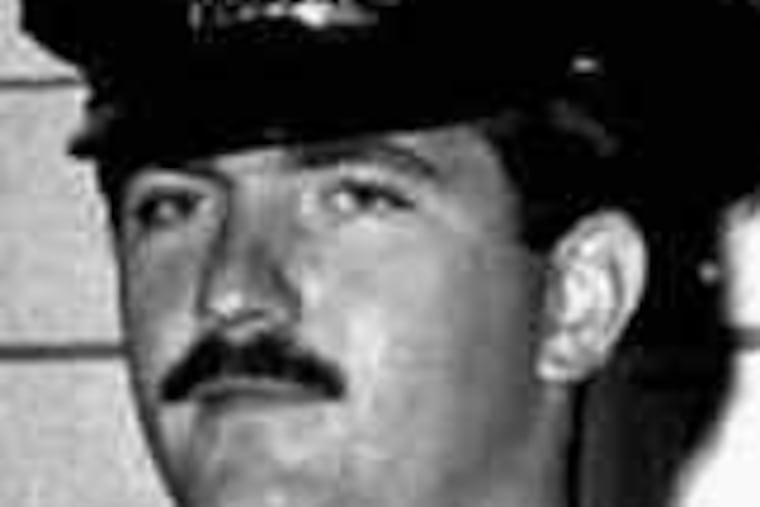Danny Faulkner: A too-long silence
AT 3:51 IN THE morning on Dec. 9, 1981, the urgent call went out over the police radio. "All units, assist the officer . . . 1234 Locust Street."

AT 3:51 IN THE morning on Dec. 9, 1981, the urgent call went out over the police radio.
"All units, assist the officer . . . 1234 Locust Street."
Approximately a minute later, officers from the 6th District found fellow officer Daniel Faulkner, all of 25 years old, face up on the pavement, blood streaming onto the ground from a hole in his back and in his head.
"Notify them he's been shot in the face," another voice somberly reported over the police radio.
Responding officers didn't just find Faulkner lying dead on the ground. They found Billy Cook, hands in the air, exclaiming, "I ain't got nothin' to do with it!"
They also found Cook's brother, Wesley, known as Mumia Abu-Jamal, with a revolver lying beside him - and a bullet from Faulkner's gun in his chest.
It was quite a scene at 13th and Locust 28 years ago yesterday.
The sidewalk where Faulkner was killed has long been cleansed of his blood, and a plaque commemorating his service rests where he fell, proclaiming the unfairness of his early loss to every pedestrian who passes by.
But what was, on Dec. 9, 1981, another simple, tragic cop-killing, made all the more simple by the fact that the bullet from Faulkner's gun identified his assassin clearer than any lineup or witness ever could, slowly built momentum until it turned into the biggest international craze since the Beatles. Only Mumia Abu-Jamal is no rock star - even though lots of people just treat him like one.
He's given prerecorded speeches at college graduations, had streets named after him in foreign countries, written and published books and essays and was set to appear on National Public Radio. After Philadelphia's FOP intervened to stop that particular offense, he turned to "Prison Radio" and "Democracy Now!" to deliver messages to his acolytes.
His words appear in many publications, and he's referred to as "the voice of the voiceless." But it's more likely that he's really the voice of Abu-Jamal, promoting himself endlessly and, maybe until recently, winning converts and supporters for his unjust cause.
There's only one person in this case who truly is voiceless, and that's Faulkner. Almost three decades after his execution, where are the banners decrying the villainy that took his young life and turned Maureen Faulkner into a young and bereft widow?
Where are the protests filling streets in Paris and Germany (and Philadelphia) filled with citizens angered by not only the callous act of savagery committed by Abu-Jamal on Dec. 9, 1981, but by the continued defamation of Faulkner's character by certain of Abu-Jamal supporters, and by the lies and distortions and ill-informed claims propagated by Abu-Jamal's most ardent defenders and allies?
Where are the voices for this voiceless, murdered police officer?
Richard Nixon once spoke of the "great, silent majority," and I think, now, 28 years after the murder that rocked this city, that moniker refers to us - the ones who see past the lies and the smoke screens and the desperate attempts at distraction and confusion. It's us, and it's time that we stopped standing around this city with our hands in our pockets quietly muttering to ourselves and tsk-tsk-ing every time another member of Abu-Jamal's ever-shuffling defense team or a Mumia supporter on the Web comes up with a new fantasy.
At 3:51 a.m. on Dec. 9, Philadelphia police radio dispatch put out the call: "Assist the officer."
It's time we answered the call, and stopped being silent.
Gabriel L. Nathan is the author of the book
"For a Tin Star: Honoring America's Slain & Living Police Officers." He lives and writes outside Philadelphia and may be reached at gabenathan@yahoo.com.